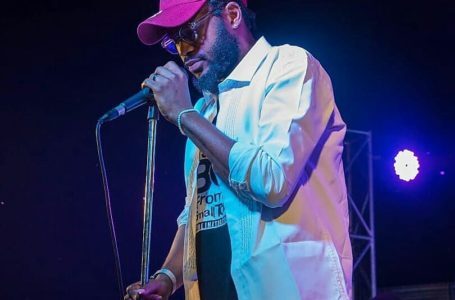In a dramatic turn of events, the House of Representatives has initiated an inquiry into allegations that officials from the Economic and Financial Crimes Commission (EFCC) and the Nigerian Correctional Service (NCoS) were bribed by controversial media personality Idris Okuneye, popularly known as Bobrisky. This scrutiny follows Bobrisky’s conviction in April for abusing the naira, which resulted in a six-month prison sentence.
Background on the Conviction
On April 5, 2024, the Federal High Court in Lagos convicted Bobrisky for the abuse of the naira, leading to his imprisonment. He was released on August 5, 2024, amid public outcry over claims of preferential treatment during his incarceration. Reports emerged suggesting that he served his sentence in a private apartment rather than in a correctional facility, raising questions about corruption and the integrity of Nigeria’s prison system.
The Allegations Unfold
The allegations of bribery gained traction after social media influencer Martins Otse, known as VeryDarkMan, released an audio recording purportedly featuring Bobrisky. In this recording, Bobrisky claimed that a powerful “godfather” had arranged for him to avoid the standard prison conditions, allegedly in exchange for a bribe of N15 million to the EFCC to drop money laundering charges against him.
During the recent hearing, officials from both the EFCC and NCoS denied these allegations. The EFCC’s representatives insisted that the charges against Bobrisky were not influenced by any bribery, emphasizing that he had pleaded guilty in his confessional statement. Meanwhile, NCoS officials defended their actions, stating that Bobrisky had been housed according to international standards, particularly given his unique circumstances, including his gender identity.
Investigative Hearing and Responses
The hearing was characterized by tensions and moments of levity, particularly when Deputy Controller of Corrections Michael Anugwa humorously remarked on learning about his suspension via a press release. The NCoS later issued a statement refuting Anugwa’s claims, stating that several officers, including Anugwa himself, had been suspended pending an investigation into their conduct.
VeryDarkMan’s testimony added another layer to the inquiry, as he claimed to have obtained the audio recording from an associate who lent Bobrisky money. He indicated that he had more recordings to present as evidence. However, the committee members expressed skepticism over Bobrisky’s failure to appear due to health issues, demanding medical documentation to substantiate his claim.
Broader Implications
This ongoing saga not only highlights the complexities of celebrity culture in Nigeria but also raises critical questions about the integrity of law enforcement agencies. The House of Representatives is now tasked with ensuring that justice is served and that any corrupt practices within the NCoS and EFCC are thoroughly investigated. As the story unfolds, it emphasizes the need for transparency and accountability in Nigeria’s institutions.
The implications of this case resonate beyond the individuals involved; they touch on broader themes of corruption, gender identity, and the treatment of high-profile inmates within Nigeria’s correctional system. As the inquiry continues, the public awaits answers that could impact both the legal landscape and societal attitudes towards similar issues.









